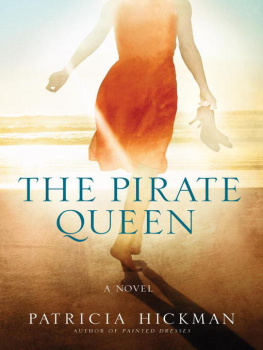First Mariner Books edition 2004
Copyright 2003 by Michael Byers
ALL RIGHTS RESERVED
For information about permission to reproduce selections from this book, write to or to Permissions, Houghton Mifflin Harcourt Publishing Company, 3 Park Avenue, 19th Floor, New York, New York 10016.
hmhbooks.com
ISBN -10: 0-395-89171-x ISBN -13: 978-0-395-89171-1
ISBN -10: 0-618-44648-6 (pbk.)
ISBN -13: 978-0-618-44648-3 (pbk.)
Library of Congress Cataloging-in-Publication Data
Byers, Michael.
Long for this world / Michael Byers.
p. cm.
ISBN 0-395-89171- X
ISBN 0-618-44648-6 (pbk.)
1. GeneticistsFiction, 2. Genetic disorders in children
Fiction. 3. AgingPreventionFiction. 4. Austrian
AmericansFiction. 5. Women immigrantsFiction.
6. Suicide victimsFiction. 7. Seattle (Wash.)
Fiction. 8. Sick childrenFiction. I. Title.
PS 3552. Y 42 L 6 2003
813.54dc21 2002191292
eISBN 978-0-547-76035-3
v2.0619
THIS BOOK IS FOR
SUSAN
WITHOUT WHOM NO LIFE,
HOWEVER LONG,
WOULD BE WORTH LIVING
AND
FOR MY FATHER
WITH LOVE
Acknowledgments
I T IS A PLEASURE to give thanks to the people who helped make this book possible: to Janet Silver at Houghton Mifflin for her freeing patience and exquisite guidance; to Timothy Seldes for his faultless encouragement and advocacy; to the Mrs. Giles Whiting Foundation, the American Academy of Arts and Letters, and PEN/New England for their support; to the enormous list of friends, family, and fellow writers without whom this would have been a most lonely projectand in particular to my father, Peter Byers, for his direction and to Virginia Sybert for her unfailing generosity and her cheerful attention to the medical details.
Most of all I am lovingly indebted to my wife, Susan Hutton, whose influence on this book is immeasurable, and whose beautiful presence in my life is a continuing inspiration.
One
1
I T WAS A BIG OLD pleasant high school gym, built in the twenties and not much disturbed by renovation. The iron rafters met at a shallow angle at the roofline, and the tall windows were made up of a dozen big panes, each reinforced with chicken wire, and the two ancient clocks sat on opposing brick walls, ratcheting their works forward with an audible whir, hiss, clunk. The gym smelled nostalgically of varnish, sweat, and paint, but it was not an obsolete or shabby place. An electronic scoreboard reading GARFIELDVISITORSQUARTERFOULSTIME OUT had been added on the east wall, and a recent grant from FareWatchers.com had supplied the courtside officials with a new Huston-Marke computerized scoring system, a sleek blue box that sat beneath the long scorers table and extended its heavy gray cables to an outlet hidden under the bleachers. The purple Garfield bulldog, wearing its studded collar, snarled up from the courts center circle, and the backboards were regulation glass, and the nets were in good repair, and when the boys played here a riotous, explosive sort of crowd would gather, and the breakaway rims actually got some use, and once in a whileonce a decade or sosomeone would appear who was so obviously superior to the rest of the boys that his future would be discussed with the frank and half-informed calculation any phenomenon inspires. The boys team often played in the state tournament and had won it six years ago, and its purple banners hung from the rafters, drifting sideways when the big purple entry doors were left open to the hall.
But tonight the girls were playing, and very few people were there. From his seat midway up the home bleachers Henry Moss could see almost everyone who had come out of the rain to watcha hundred or so people, including his wife, Ilse, and son, Darren, who sat directly in front of him, a row below, so he was looking down into their hair; and Sandra, his daughter, who was on the court, holding the ball with her back to the hoop, wearing the stern and thoughtful expression of someone taking apart a complicated bomb. The girls team was not nearly as good as the boysin fact, they lost almost every game they playedbut Sandra herself was very good, the starting center, and despite the teams terrible record she carried herself up and down between the baskets with a kind of preoccupied confidence that plucked at Henrys heart and made him lean down now and then to grasp his wifes shoulders. She would pat his hands and hold them for a second before letting go. It was not an uncommon gesture there; the team was so badso unwatchably bad at times, reallythat nearly everyone in the gym was related in some way to one of the players. So it was a tender and familiar gathering, on the home side, anyway, under the old painted roof, and Henry was faintly conscious of the fellow feeling that surrounded him. A girl made an unlikely shot, or rolled her eyes in some characteristic way, or wiped her mouth in a gesture of embarrassed happiness, and somewhere in the bleachers Henry sensed someones heart rising; there would come a bark of surprised laughter or a few beats of applause while the team fell back ten points, twenty before halftime. Even Darren would applaud his sister when he felt like it, though Henry suspected it was largely to draw attention to himself. He cupped his hands and shouted, Go, Moss! when she had the ball in the post, and when she stood at the foul line, her knees bent and the ball resting easily in her big, practiced handsresting, restingDarren would wait in silence until she cocked her elbows and sent the ball feathering through the net, when he would shout down at her, And one! with his newly deep voice, the voice of a stranger.
Behind them at the top of the bleachers tonight were a dozen or so children too young to be left at home alone but old enough to throw crumpled-up paper at each other, and occasionally at Henry. After being hit twice in the head, not accidentally, he had had enough, and he made his slow way up to the top of the bleachers, where the benches were deeply gouged with graffiti, blue and black, name after name: Michelle Grigo Peeper LaShelle VeeVee Ashlee Adam Brad La Vonn. The children, seeing that he was there to stay, moved off to the other end of the stands and eventually through the open purple doors into the long empty hall outside, where they could be heard chanting, Got no money, got no friends, got nobody that he can and then something he could not understand.
The crowd below him was clustered into groups of five or six, with a small population that circulated from group to group, making the rounds. As he watched, Darren, just turned fourteen, stood and maneuvered down beside a clutch of three girls, who after a moment burst into laughter at something he had said. His boy! Darren was not a handsome kidhis jaw was too long and seemed packed with teeth, and his eyes sat very deep in his skull, as though someone had pressed them in with a thumb. Henry had looked exactly the same at fourteen and had spent most of his adolescence staring at girls longingly from across the room, but Darren was different. Fearless.
Henrys wife tipped her head back, looked at him strangely, upside-down. What are you doing up there? her eyebrows asked.
He shrugged. Nothing. Enjoying the view. Up close, the iron rafters could be seen to have been painted dozens of times, white over white over white, and a faint tapping on the roof was rain. When he peered down through the slats of the bleachers, he could see in the looming darkness below a discouraging litter of potato chip bags, soda cans, miscellaneous papers, odd articles of clothing, but it seemed to Henry a secret, alluring kind of place, way down there and out of sight, the sort of hideout he would have liked to investigate if he were not fifty-one, a father, and an eternal source of potential humiliation to Sandra and Darren. So he stayed where he was.












